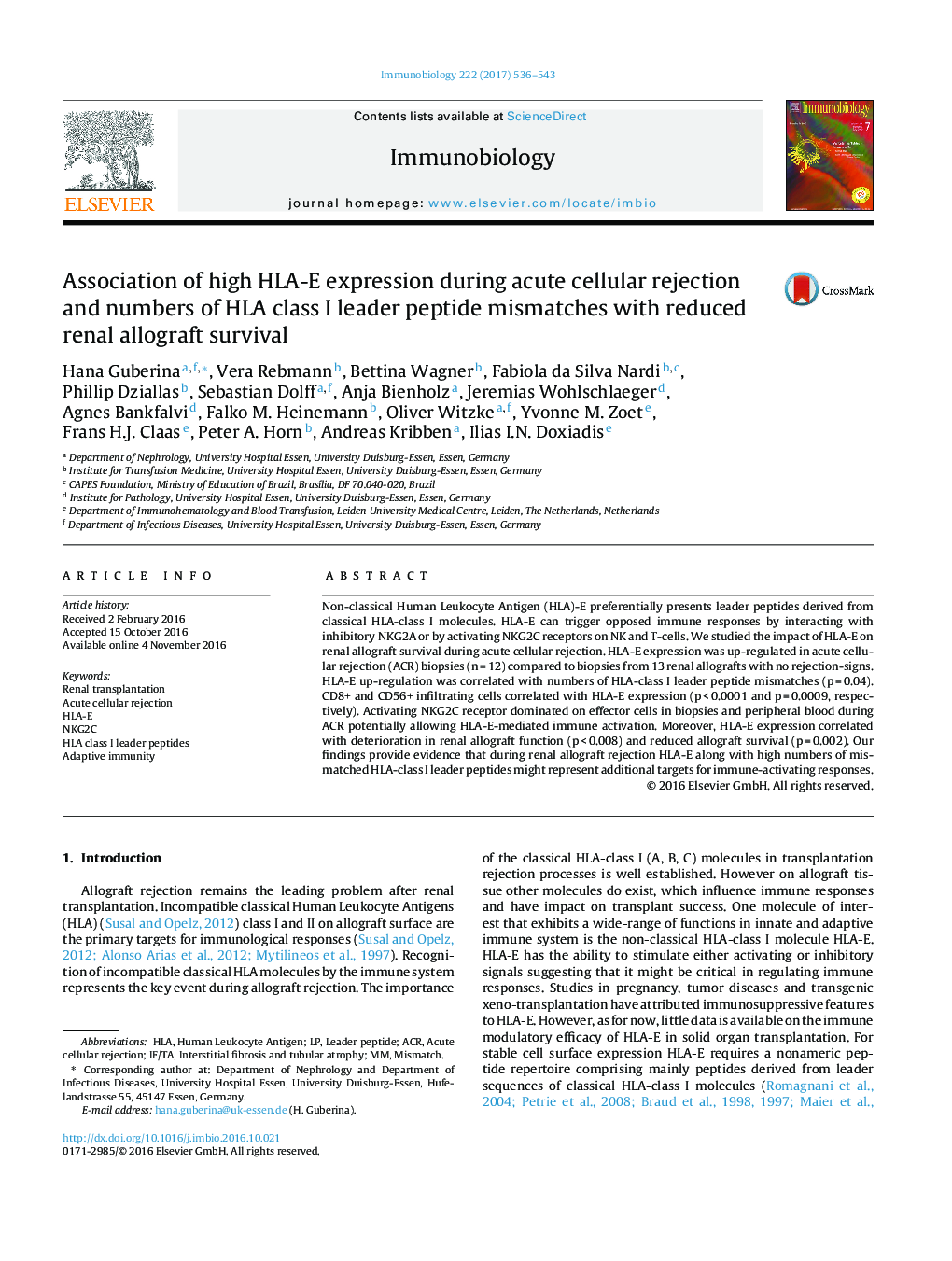| Article ID | Journal | Published Year | Pages | File Type |
|---|---|---|---|---|
| 5533203 | Immunobiology | 2017 | 8 Pages |
â¢HLA-E is up-regulated in renal allografts during acute cellular rejection.â¢HLA-E up-regulation is linked with increased HLA-class I leader peptide mismatches.â¢HLA-E expression is correlated with T and NK cells infiltration in renal allograft.â¢HLA-E-related activating NKG2C receptor is predominant expressed in rejection.â¢HLA-E up-regulation is associated with impaired renal allograft function and survival.
Non-classical Human Leukocyte Antigen (HLA)-E preferentially presents leader peptides derived from classical HLA-class I molecules. HLA-E can trigger opposed immune responses by interacting with inhibitory NKG2A or by activating NKG2C receptors on NK and T-cells. We studied the impact of HLA-E on renal allograft survival during acute cellular rejection. HLA-E expression was up-regulated in acute cellular rejection (ACR) biopsies (n = 12) compared to biopsies from 13 renal allografts with no rejection-signs. HLA-E up-regulation was correlated with numbers of HLA-class I leader peptide mismatches (p = 0.04). CD8+ and CD56+ infiltrating cells correlated with HLA-E expression (p < 0.0001 and p = 0.0009, respectively). Activating NKG2C receptor dominated on effector cells in biopsies and peripheral blood during ACR potentially allowing HLA-E-mediated immune activation. Moreover, HLA-E expression correlated with deterioration in renal allograft function (p < 0.008) and reduced allograft survival (p = 0.002). Our findings provide evidence that during renal allograft rejection HLA-E along with high numbers of mismatched HLA-class I leader peptides might represent additional targets for immune-activating responses.
